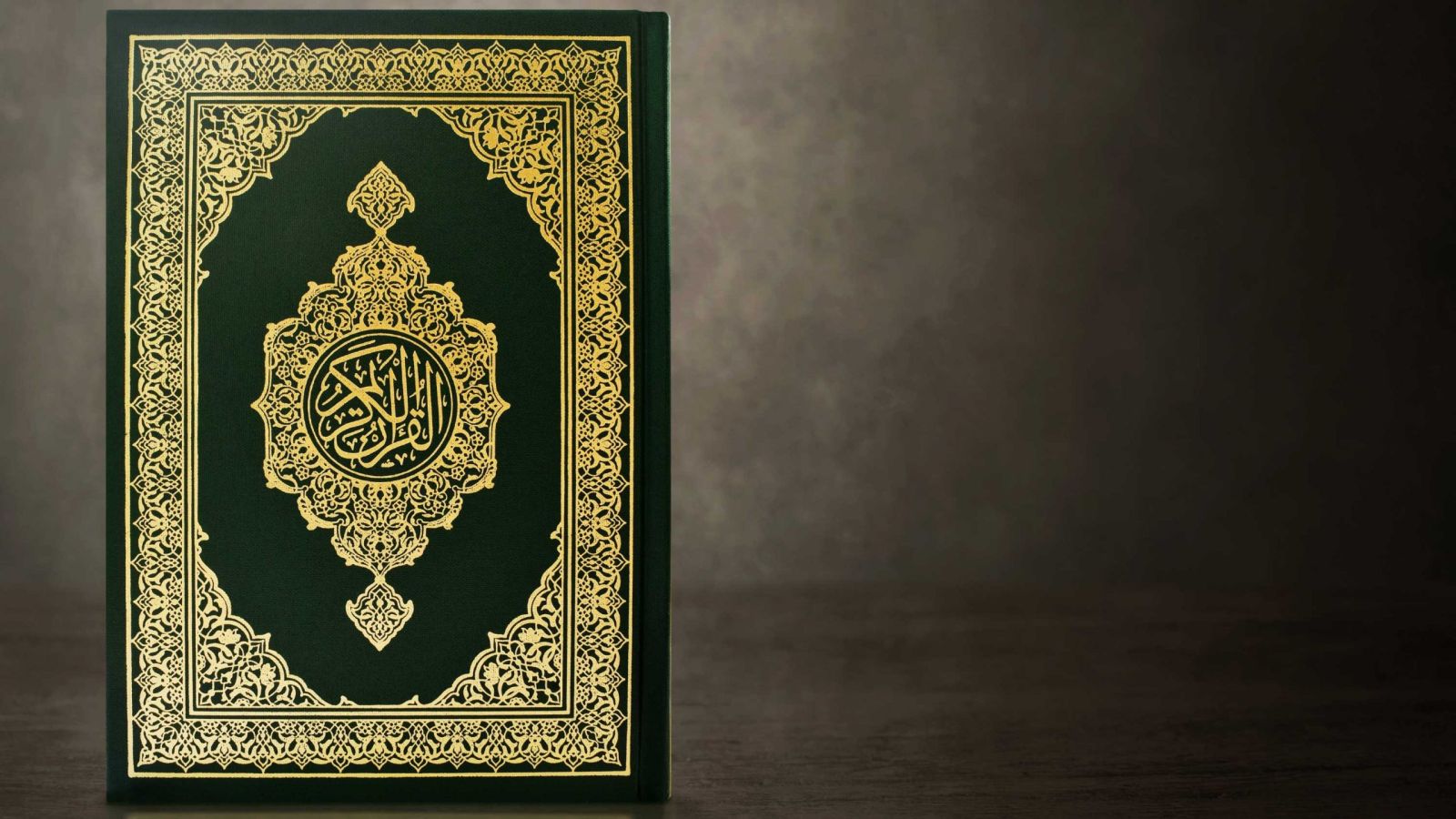Our noble teacher goes through the varying stations of the Prophets and Messengers, with the Prophet Muḥammad (ṣallallāhu ʿalayhi wa-sallam) being the best of all the Prophets and Messengers. Some of the highly beneficial points mentioned are:
- The Prophets and Messengers have different statuses with Allāh.
- Allāh sent to nations some who were Prophets but not Messengers, and others who were both Prophets and Messengers; some were mentioned to be from among the ūlul ʿazm, and some having characteristics that others did not possess.
- There are texts which prohibit making distinctions between the Messengers and some may understand this in the wrong light by thinking that it is not permitted to say that the Prophet Muḥammad (ṣallallāhu ʿalayhi wa-sallam) is the best of Messengers.
- The Messengers themselves had different levels of status, and the evidence for this is in the Qurʾān:
تِلْكَ الرُّسُلُ فَضَّلْنَا بَعْضَهُمْ عَلَىٰ بَعْضٍ ۘ مِّنْهُم مَّن كَلَّمَ اللَّـهُ ۖوَرَفَعَ بَعْضَهُمْ دَرَجَاتٍ
‘Those Messengers! We preferred some often to others; to some of them Allāh spoke (directly); others He raised to degrees (of honour)’
[Sūrah al-Baqarah, 2:253]
and also:
وَلَقَدْ فَضَّلْنَا بَعْضَ النَّبِيِّينَ عَلَىٰ بَعْضٍ ۖ وَآتَيْنَا دَاوُودَ زَبُورًا
‘And indeed, We have preferred some of the Prophets above others, and to Dāwūd (David) We gave the Zabūr (Psalms)’
[Sūrah al-Isrā, 17: 55]
- Abū Qatāda mentioned that the Prophets and Messengers had varying degrees of excellence: Ibrāhīm (ʿalayhi al-salām) was taken as the khalīl of Allāh, Mūsá (ʿalayhi al-salām) was spoken to directly by Allāh, ʿĪsá (ʿalayhi al-salām) was created in the manner of Allāh stating ‘Be’ and he was, Sulaymān (ʿalayhi al-salām) was given a power on earth which no one else would be permitted to have after him, and Dāwūd (ʿalayhi al-salām) was given the Psalms. This was an address to previous nations, that if you have no problem accepting that the Prophets were of different levels why then do you not accept the Prophet Muḥammad (ṣallallāhu ʿalayhi wa-sallam)? The reason they rejected the Messenger of Allāh was due to their jealousy over the fact that that Prophet Muḥammad came from the Arabs and not the Jews. or from their lineage.
- The Jews and the Christians used to acknowledge that the Prophets were of different levels, and Allāh reminded them that He is the One who gave virtue to some over others; therefore, what is the problem in accepting Muḥammad (ṣallallāhu ʿalayhi wa-sallam)?
- No previous Messenger was given a book like the Qurʾān which was not subject to change. It is a book that is a source of guidance and healing, direction and purification, a book that calms the hearts and draws them closer to Allāh.
- However, Muḥammad (ṣallallāhu ʿalayhi wa-sallam) being the final Messenger, it is only befitting that his book remains untampered – a book preserved with a promise from Allāh.
- Allāh allowed the previous texts to be changed since each Messenger from those times knew another Messenger would be sent clarifying the errors made.
- Coupled with the the noble Qurʾān which has been preserved, is the ḥikmah of the Sunnah, teachings from the Prophet Muḥammad that go on to be a source of amazement to doctors and scientists, teachings which have scientific proof behind them which clearly show that these are statements of guidance.
- Al-Shawkāni said: ‘there is no faḍl greater than Prophethood and receiving revelation’.
- It is recorded in Ṣaḥiḥ Muslim by way of Abū Hurayrah, that the Messenger of Allāh (ṣallallāhu ʿalayhi wa-sallam) said: ‘I am the chief of all of the sons of Ādam on the Day of Judgement, and I do not say this to boast. I am the first for whom the graves will open up for, and I am the first to be interceded, and the first one to be granted that intercession.’
- In the Musnad of Imām Aḥmad, it is narrated by Abū Saʿīd al-Khudri that the Messenger of Allāh said: ‘I am the chief of the sons of Ādam on the Day of Judgement and I do not say this boasting. I am the first of those whom the ground will open up for and I do not say this boasting, and I am the first one who will intercede on the Day of Judgement, and I do not say this boasting’.
- These aḥadīth establishes the leadership of the Prophet (ṣallallāhu ʿalayhi wa-sallam). The sayyid is the one who has the highest possible attributes and highest and best manners, and this shows he is better than them in the dunyá and in the hereafter.
- Al-Khaṭṭābi said: this ḥadīth is his informing us about what Allāh has blessed him with from the faḍl and the leadership position he has been given amongst all of the Prophets, and speaking of the virtues of Allāh and calling the people to tawḥīd, and his specific distinction. This is so that the Īmān of the followers who are informed of this and their ʿaqīdah and obedience can be based on his great status with Allāh.
- We know that his statement was not a form of boasting or bragging, since the Prophet (ṣallallāhu ʿalayhi wa-sallam) in general was described by Allāh as:
وَمَا يَنطِقُ عَنِ الْهَوَىٰ
‘Nor does he speak of (his own) desire’
[Sūrah al-Najm, 53: 3]
- It is narrated in Ṣaḥīḥ Muslim, by way of Abū Hurayrah, that the Messenger of Allāh said: ‘I have been given distinction over the rest of the Prophets by way of six things: I have been given small words that have concise, detailed and extensive meanings, I have been given victory over my enemies by fear placed in their hearts, for me the war booty has been made permissible, the entire earth has been made a place of purification and prostration, I have been sent to the entire creation and I am the Seal of the Prophets.
- This ḥadīth and others are entirely clear about the distinction concerning the status of the Prophet Muḥammad (ṣallallāhu ʿalayhi wa-sallam) over other Prophets, and this has been mentioned by the scholars.
- From his other virtues is that he was raised above the creation by way of ascension, and he was given revelation through a variety of different ways and in stages.
- Allāh allowed him to see Jibrīl (ʿalayhi al-salām) in his original form, and the angels came down to fight with the Messenger in battle, and the Maqām Maḥmūd where the Prophet will intercede for his ummah.
- The Prophets and Messengers before Muḥammad (ṣallallāhu ʿalayhi wa-sallam) were mentioned in the Qurʾān by their names, whereas the Prophet was only addressed with titles, and not simply his name; the scholars mention that if a slave owner has slaves all of whom he calls by their name, and he has one slave whom he addresses with different titles, it shows that he has distinction.
- The Prophet Muḥammad (ṣallallāhu ʿalayhi wa-sallam) was the best of previous Messengers and creation and was given things other Prophets were not given.
- Some use the āyah in Sūrah al-Baqarah, verse 136 as a proof to say that it is not permissible to make a distinction between Messengers, and that to say that Muḥammad (ṣallallāhu ʿalayhi wa-sallam) is the best of the prophets is a contradiction.
- Ibn kathīr (raḥimahullāh) mentioned that Allāh has guided his believing servants so that they do not make statements like those uttered by the nations which came before them.
- Al-Tabari said concerning the prohibition of making a distinction between the Messengers, ‘meaning we do not believe in some and disbelieve in others, and make ourselves disassociated with some and associated with others, just as the Jews declared themselves innocent and followers of Mūsá (ʿalayhi al-salām) and then when ʿĪsá (ʿalayhi al-salām) and Muḥammad (ṣallallāhu ʿalayhi wa-sallam) came they said it is sufficient we have Mūsá, so they made a distinction. The Christians also declared themselves free of Muḥammad (ṣallallāhu ʿalayhi wa-sallam) but affirmed the Messengership of Muḥammad. So the distinction is that you believe in some and reject others – this type of distinction is prohibited and is in relation to accepting some and rejecting others.
- Shaykh Ṣāliḥ al-ʿUthaymīn (raḥimahullāh), mentioned that the prohibited way of making a distinction between Messengers is of two types – the first type is believing in some of the Prophets over others, and the second type is to prefer and brag of one’s own Prophet and to raise his Prophet by speaking ill of other Prophets; pointing out deficiencies in other Prophets in order to raise his own Prophet.
- Ahl al-Sunnah still honour, respect and revere all of the other Messengers, just as they do the Prophet Muḥammad (ṣallallāhu ʿalayhi wa-sallam).













